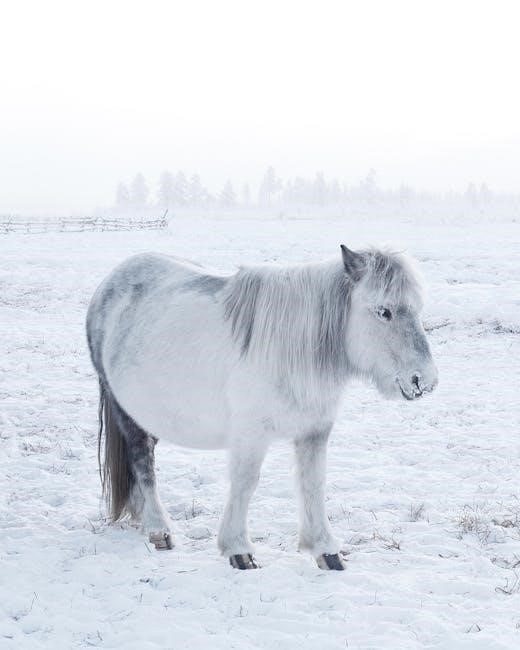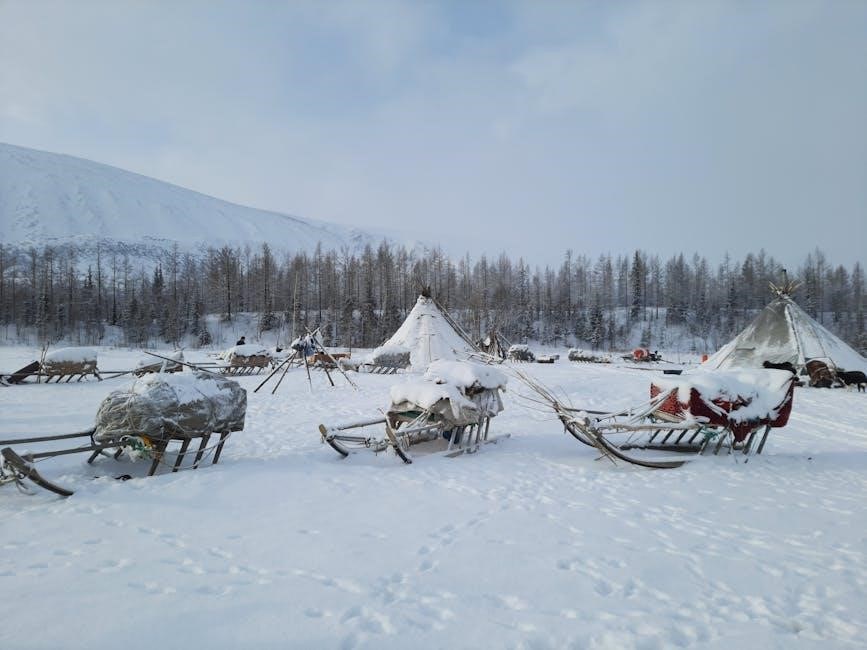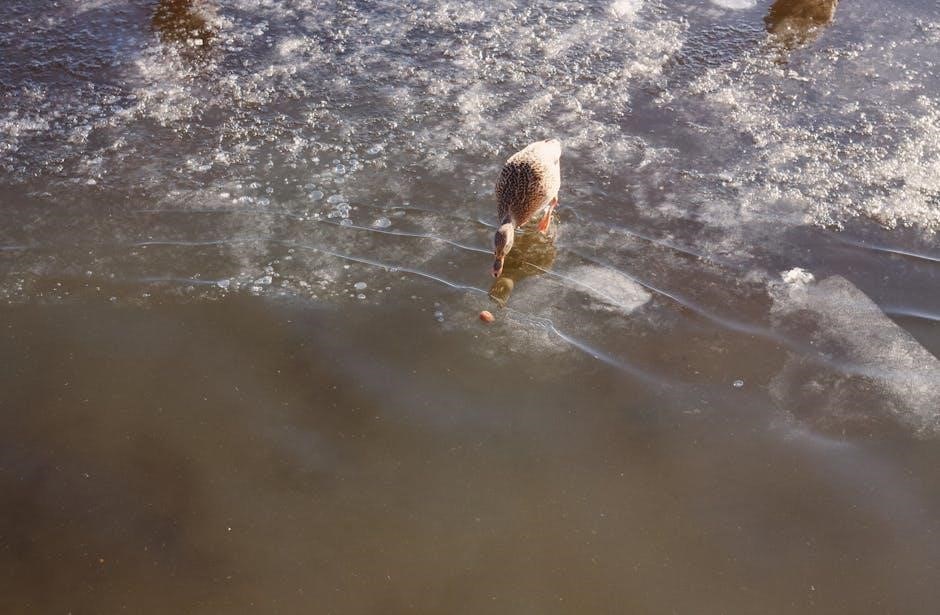Survival in Russia and globally requires adaptability, cultural insight, and preparedness. Current threats like nuclear risks, climate change, and geopolitical tensions demand strategic planning and resilience.
1.1. Historical Context of Survival in Russia
Russia’s survival history is marked by resilience amid invasions, political upheavals, and harsh environments. From the Mongol yoke to the Napoleonic Wars, survival strategies evolved, emphasizing adaptability and resourcefulness. The Soviet era introduced nuclear preparedness, while modern times focus on geopolitical tensions and technological threats. Historical lessons shape Russia’s approach to survival, blending traditional resilience with contemporary challenges, ensuring a unique perspective on enduring global crises and maintaining national stability. This legacy underpins survival strategies in Russia and beyond.
1.2. Global Relevance of Survival Strategies
Survival strategies are universally relevant, transcending borders. From nuclear threats to climate change, global challenges demand adaptive solutions. Russia’s experiences, such as coping with harsh climates and geopolitical tensions, offer insights applicable worldwide. The interconnectedness of modern crises, like pandemics and economic sanctions, underscores the need for shared survival knowledge. Strategies developed in Russia, such as resilience training and linguistic adaptability, resonate globally, highlighting the importance of collaboration in addressing shared threats. This global perspective ensures survival tactics remain effective and evolving.

Cultural and Linguistic Survival in Russia
Mastery of basic Russian phrases and cultural norms is vital for effective communication and integration. Resources like “Survival Russian” and phrase books provide essential linguistic tools.

2.1. Essential Russian Phrases for Survival

Mastering key Russian phrases is crucial for communication. Phrases like “Hello, how are you?” (” Privet, kak dela?”), “Where is the nearest hospital?” (“Gde blizhajshij bol’nitsa?”), and “I need help” (“Mne nuzhna pomoshch'”) are vital. Resources like “Survival Russian” and phrase books provide practical language tools. These phrases aid in navigating everyday situations, from asking directions to emergencies, ensuring effective interaction and building rapport with locals.
2.2. Cultural Norms and Etiquette in Russia
Understanding Russian cultural norms is vital for effective interaction. Respect for traditions, such as removing shoes indoors and using formal titles, demonstrates courtesy. Hospitality is deeply valued, with guests often greeted with food and drinks. Maintaining eye contact and avoiding public displays of affection are appreciated. These customs reflect Russia’s rich history and societal expectations, ensuring harmonious communication and building trust in personal and professional relationships. Adapting to these norms fosters mutual respect and eases integration into Russian society.

Geopolitical Implications and Survival
Russia’s geopolitical actions, such as the Ukraine conflict, heighten global tensions, raising concerns about nuclear threats and the need for international cooperation to mitigate risks and ensure stability.
3.1. Russia-Ukraine Conflict and Global Tensions
The Russia-Ukraine conflict has escalated global tensions, with concerns about nuclear threats and World War III preparations. Europe is stockpiling survival guides and bunkers, while Ukraine’s survival hinges on U.S. support. Russia’s actions have sparked fears of broader instability, prompting international alliances to strengthen defenses and plan for potential escalation. The conflict underscores the delicate balance of global security and the need for diplomatic solutions to prevent further devastation.
3.2. Nuclear Threats and Survival Preparedness
Nuclear threats from the Russia-Ukraine conflict have heightened global alarm, prompting survival preparedness. Experts recommend updating nuclear survival skills, including shelter strategies and radiation protection. Europe is preparing bunkers, while survival guides emphasize essential supplies and communication plans. The risk of nuclear escalation necessitates proactive measures to safeguard populations and infrastructure, ensuring readiness for potential catastrophic events. Preparedness is crucial to mitigate the devastating impacts of nuclear threats on a global scale.

Environmental and Economic Survival
Sanctions on Russia disrupt global supply chains, impacting economies worldwide. Climate change further threatens survival, with Russia’s vast territories particularly vulnerable to environmental shifts and resource scarcity.
4.1. Impact of Sanctions on Russia and the World
Sanctions on Russia have significantly impacted its economy, particularly in energy exports, leading to reduced government revenue and economic instability. Globally, these sanctions have caused energy price volatility and supply chain disruptions, affecting industries worldwide. The strain on Russia’s economy has also led to increased inflation and unemployment, weakening the ruble. Additionally, the sanctions have prompted Europe to accelerate renewable energy transitions and increase military spending, further complicating global economic recovery and survival strategies in the face of geopolitical tensions.
4.2. Climate Change and Survival in Russia
Climate change poses significant challenges for survival in Russia, with melting permafrost threatening infrastructure and biodiversity. Extreme weather events, such as wildfires and floods, are intensifying, disrupting ecosystems and human settlements. Additionally, changes in temperature and precipitation patterns affect agricultural productivity, leading to food insecurity. Russia must adapt by implementing sustainable practices, investing in climate-resilient infrastructure, and promoting international cooperation to mitigate these impacts and ensure long-term survival in a rapidly changing environment.
Technological and Cyber Survival
Technological advancements are crucial for survival, offering tools for cybersecurity, communication, and resource management. Innovation in technology enhances resilience against cyber threats and fosters global connectivity.
5.1. Cybersecurity Threats in Russia
Russia faces escalating cyber threats, including state-sponsored attacks and criminal activities. Targets range from government systems to private industries and individuals. Malware, phishing, and ransomware attacks are prevalent, exploiting vulnerabilities in digital infrastructure. Foreign entities and businesses operating in Russia are particularly at risk. Strengthening cybersecurity measures, such as encryption and firewalls, is critical. Additionally, awareness and training are essential to mitigate risks in an increasingly hostile digital environment, ensuring survival in a interconnected world.
5.2. Role of Technology in Modern Survival
Technology plays a vital role in modern survival, enhancing preparedness and response to threats. From communication tools to data security, it enables individuals and nations to adapt. In Russia, advancements in cybersecurity and surveillance systems are critical. Globally, technology aids in predicting natural disasters and managing resources. Access to information and innovative solutions empowers individuals to thrive in challenging environments. Thus, leveraging technology is essential for long-term survival in an increasingly complex and interconnected world.
Mental and Physical Resilience
Mental strength and physical endurance are crucial for survival. Strategies like psychological preparedness and maintaining health help individuals navigate challenges in both Russia and globally.
6.1. Psychological Strategies for Survival
Psychological resilience is vital for survival, especially in high-stress environments. Techniques like maintaining composure, emotional regulation, and cognitive reframing help individuals stay focused. Building mental strength through mindfulness and positive thinking enhances adaptability. Additionally, fostering a sense of purpose and community support can bolster resilience. These strategies are particularly relevant in Russia and globally, where challenges like nuclear threats and geopolitical instability demand mental fortitude.
6.2. Physical Health and Wellness in Survival Scenarios
Physical health is critical for survival, especially in challenging environments. Prioritizing proper nutrition, hydration, and hygiene ensures bodily resilience. Regular exercise and mental relaxation techniques, like deep breathing, reduce stress. In Russia’s harsh climate, appropriate clothing and shelter are essential. Medical preparedness, including first aid and emergency kits, is vital. Adaptability and resilience in maintaining physical well-being are key to overcoming global survival challenges, ensuring long-term health and readiness for unforeseen threats.
Global Collaboration and Survival

Global collaboration is crucial for addressing shared survival challenges, fostering international alliances, and promoting collective strategies to ensure resilience against threats like nuclear conflicts and climate change.
7.1. International alliances and Survival
International alliances play a pivotal role in enhancing global survival capabilities. By fostering cooperation, nations can pool resources, share intelligence, and develop unified strategies to combat threats. Strong alliances ensure collective security, economic stability, and mutual aid during crises. The collaboration between countries like the US and its European partners exemplifies how unity strengthens resilience against geopolitical tensions and potential conflicts, ensuring a safer and more stable world for all.
7.2. Humanitarian Efforts in Survival Scenarios
Humanitarian efforts are crucial in survival scenarios, providing aid to affected populations and mitigating suffering. Organizations deliver food, medical supplies, and shelter, while promoting peace and stability. These initiatives foster hope and resilience, ensuring vulnerable communities can endure and recover. Collaboration between governments and NGOs amplifies impact, addressing both immediate needs and long-term recovery, ultimately safeguarding human dignity and fostering sustainable survival strategies worldwide.

Future Outlook and Survival Strategies
Future survival hinges on predicting threats, adapting strategies, and fostering global cooperation. Climate resilience, technological innovation, and international alliances will be key to navigating upcoming challenges effectively.
8.1. Predicting Future Threats to Global Survival
Future threats include escalating nuclear risks, climate instability, and technological vulnerabilities. Geopolitical tensions, cyberattacks, and economic instability may worsen. Predicting these threats requires monitoring global trends, strengthening international alliances, and investing in resilience strategies. Climate change and resource scarcity could trigger new conflicts, while pandemics and technological failures pose additional risks. Proactive measures, such as early warning systems and adaptive planning, are essential to mitigate these challenges and ensure global survival in the face of uncertainty.

8.2. Adaptive Strategies for Long-Term Survival
Adaptive strategies for long-term survival involve diversifying resources, fostering resilience, and leveraging technology. Building robust communities, enhancing cybersecurity, and promoting sustainable practices are critical. Continuous learning, mental fortitude, and resourcefulness enable individuals to thrive amid uncertainty. By embracing flexibility and innovation, societies can navigate evolving challenges, ensuring longevity and stability in an increasingly complex world. These strategies require collaboration, foresight, and a commitment to enduring global well-being.
Survival in Russia and the world demands resilience, adaptability, and strategic foresight. By mastering cultural, geopolitical, and technological challenges, individuals and nations can secure a stable future globally.
9.1. Summary of Key Survival Strategies

Mastering essential Russian phrases, understanding cultural norms, and staying informed about geopolitical tensions are crucial. Preparing for nuclear threats, adapting to climate change, and leveraging technology enhance resilience. Building mental and physical strength, fostering international alliances, and engaging in humanitarian efforts ensure long-term survival. By integrating these strategies, individuals and nations can navigate challenges in Russia and globally, securing a safer and more sustainable future.
9.2. Final Thoughts on Russia and the World
Russia and the world face interconnected survival challenges, from geopolitical tensions to climate change. Understanding cultural nuances, leveraging technology, and fostering global collaboration are vital. The Russia-Ukraine conflict underscores the need for diplomacy and preparedness. By learning from history, embracing resilience, and uniting against threats, humanity can navigate uncertainty and build a safer future for all. Survival demands adaptability, knowledge, and collective action in an increasingly complex world.



